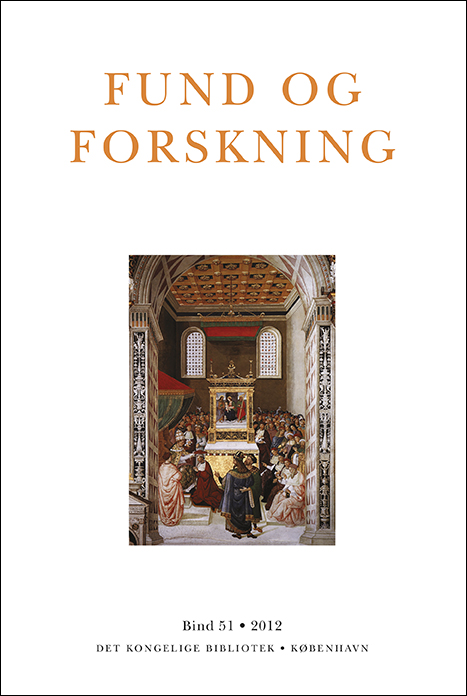Dulce bellum inexpertis. “Skøn er krigen for den, der ikke kender den.” Arild Huitfeldt og Christian 4.
DOI:
https://doi.org/10.7146/fof.v51i0.41268Resumé
Arild Huitfeldt’s prefaces to the individual volumes of his Chronicles of Denmark (1595–1604) assume their character of political admonitions addressed to the young Christian IV. Harald Ilsøe has characterized Huitfeldt as a “secret” student of Machiavelli and has shown that the prefaces contain concealed quotations from the Discorsi sopra la prima deca di Tito Livio. An undisguised ideal figure, whom Huitfeldt likes to quote, is Philippe de Commines. Huitfeldt, in his foreword to Hans Mogensen’s Danish translation of Philippe de Commines’ Memoirs (1605), accordingly adopts as his own ideal the analytical and “realistic” approach to writing history of Philippe de Commines and Guicciardini.
Huitfeldt does more than simply paraphrase Machiavelli and de Commines. In his preface to King Hans’ history (1599), Huitfeldt, proceeding from this king’s efforts to reconquer Sweden, stresses that even a just war could go wrong. His arguments are political as well as moral and draw on undeclared references to Erasmus of Rotterdam’s antiwar essay Dulce bellum inexpertis – war is beautiful for those who do not know it – which is contained in his Adagia, a collection with commentaries of Greek and Latin sayings.
Erasmus’ point is that war is often started by inexperienced princes, who lack insight.
Huitfeldt’s use of such formulations in a preface to a young king, who desires an expansive foreign policy, must be seen as daring.
By combining Erasmus and Machiavelli, Huitfeldt emphasizes that morality and realpolitik are not opposites; avoiding the devastation of war is a form of realpolitik.
Relying one-sidedly on a military solution is a sign of inexperience, dulce bellum inexpertis. This point of view was reiterated at a meeting of the war council in 1604, where Huitfeldt and his supporters opposed the king’s war plans by explaining that politics is not simply a matter of having right on one’s side: he who aims to rule must be able to dissemble and to exercise self-discipline. One must take account of reality.


